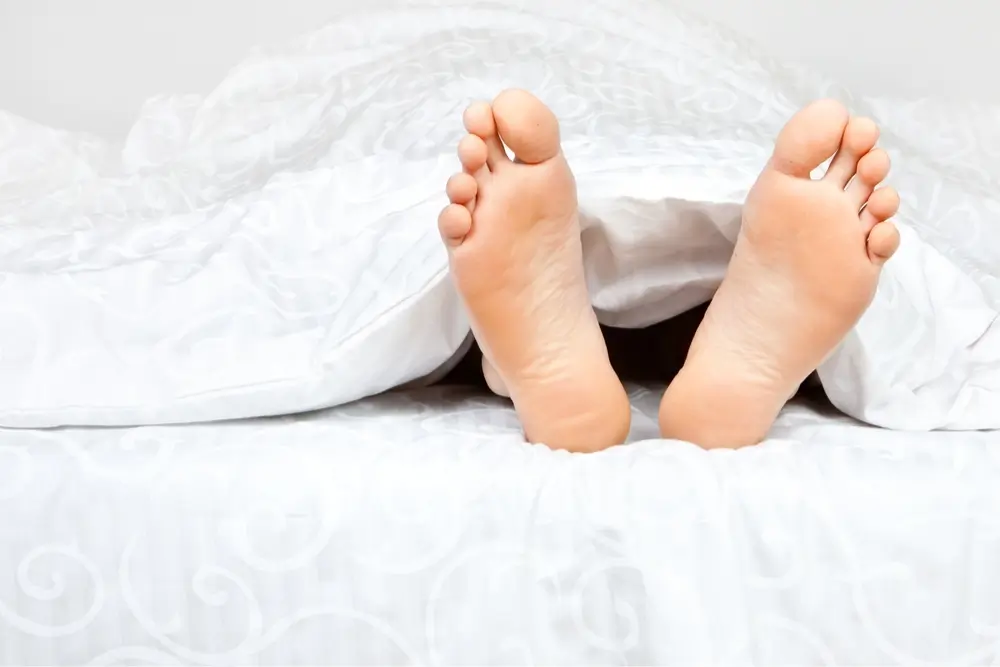Restless Legs Syndrome- causes, symptoms & treatment
What is Restless Legs Syndrome?
- Restless legs Syndrome is a common neurological (nerve) disorder which leads to a strong urge to move the legs, as well as other unpleasant sensations in the legs.
- It can have a major impact on a person’s life- in particular, it can affect the quality of sleep.
- Restless Legs Syndrome appears to be related to Dopamine levels. Dopamine is a chemical messenger which naturally occurs in the brain- and medications which increase Dopamine levels often relieve the symptoms- at least in the short term.
What causes Restless Legs Syndrome?
- Restless Legs Syndrome can be primary (i.e. no obvious underlying cause)- it’s not entirely understood, but is probably related to the dopamine pathways in the brain.
- Or it may be secondary, due to an underlying issue such as:
- Iron Deficiency (a common secondary cause)
- Neuropathy (damaged nerves)
- Kidney disease
- Medications such as certain anti-nausea drugs, antipsychotics, antidepressants and older types of antihistamines in cold & flu or allergy medications.
- Caffeine, Alcohol and/or Nicotine
- Pregnancy- restless legs usually settle a few weeks after the delivery
Who gets Restless Legs Syndrome?
- Restless Legs Syndrome affects approximately 5-10% of adults
- There is a family history in half of cases
- It can first happen at any age, but most commonly starts between 20 and 40 years.
- The later it starts in life, the more likely there’s an underlying condition, for example neuropathy, kidney disease or iron deficiency.
What are the symptoms of Restless Legs Syndrome?
- The classic symptom is an overwhelming urge to move the legs during rest or inactivity, especially in bed at night.
- People may experience a crawling sensation, pins & needles, aches, pulling or itching in the legs.
- The symptoms are usually worse in the evening and through the night, though they may improve in the early hours of the morning, allowing a few hours of good sleep.
- Bouts of leg movement can also occur, at night or during the day- these are involuntary, twitchy movements.
- The symptoms and severity can vary widely from person to person, and may come and go over time
- Disturbed sleep causes fatigue, changes in mood, poor concentration and can have a negative impact on day-to-day functioning.
- In the earlier stages, the symptoms may come and go, with breaks of weeks or months. However, over time the symptoms tend to become more consistent and troublesome, particularly if related to an underlying condition.
How is Restless Legs Syndrome diagnosed?
These are 5 essential criteria required to make the diagnosis- a person must have all 5. These are:
- An urge to move the legs, typically accompanied by unpleasant sensations in the legs
- These symptoms usually occur during rest or inactivity
- The urge to move (and the accompanying sensations) are relieved by movement
- Symptoms are worse in the evening and at night
- The person has no relevant underlying conditions and takes no medications which could explain the symptoms.
Are any tests required?
- If a person has restless legs, it’s important to consider any underlying causes.
- Blood tests may be required to check for iron deficiency (full blood count and iron studies), kidney disease (renal function test), and possibly liver function test, thyroid function test, glucose, Vitamin B12, calcium levels and inflammatory markers.
- If neuropathy (nerve damage) is suspected, it may be worth consulting a neurologist, who may request further blood tests, Nerve Conduction Studies and scans.

What is the treatment for Restless Legs Syndrome?
Treatment for restless legs syndrome may include lifestyle changes as well as medications:
Non medication treatments:
- In mild cases, lifestyle changes may help- good sleep hygiene, reduction of caffeine and alcohol intake, quit smoking, increase exercise, stretching, massage and relaxation techniques.
- If you’re taking any regular medications, you should check the label to see if Restless Legs Syndrome could be a side effect.
- If iron levels are low, supplements should be taken- it’s advised to aim for a ferritin (iron store) level above 50 ng/Ml
Medications
- Medication may be considered if symptoms are having a significant negative impact on day to day activities, quality of life and sleep.
- Recent research shows that many of the medications previously used to treat Restless Legs Syndrome have the potential to cause worsening of symptoms over time- including antihistamines, anti-nausea drugs, dopamine agonists, antidepressants, beta blockers, antiepileptics and lithium.
- Dopamine agonists and Gabapentinoids can help the sensory symptoms such as pins & needles. The Dopamine Agonists can be more helpful for the periodic leg movements, while Gabapentinoids may improve sleep.
- However, long-term studies show that if taken for 5 to 10 years, Dopamine Agonists may stop working, and symptoms may actually get worse.
- Where medication is deemed appropriate, it is recommended to start with a Gabapentinoid, while Dopamine Agonists should be avoided unless absolutely necessary, and then if needed to use the lowest effective dose for the shortest possible time.
What is the prognosis?
- Unfortunately, Restless Legs Syndrome is often a lifelong condition- though it may come and go over time
- Lifestyle changes and medications often help
- Symptoms may worsen over time- more so in people with an underlying cause.
If you require more information about Restless Legs, or wish to know more about treatment options for Restless Legs Syndrome, check out the Brain Foundation website , or speak to your GP.
Getting a Mental Health Care Plan in Australia: Your Guide
Getting a Mental Health Care Plan in Australia: Your Guide Mental health matters—and if you’re feeling overwhelmed, anxious, or down, a mental health care plan can help. But what is it, and how do [...]
UTI Symptoms and Treatment: What You Need to Know
UTI Symptoms and Treatment: What You Need to Know Urinary Tract Infections (UTIs) are common, uncomfortable, and often disruptive. But what exactly are the signs to watch for, and how can you get relief [...]
Free Mental Health Care Plan Online | Bulk-Billed by Qoctor
Free Mental Health Care Plan Online | Bulk-Billed by Qoctor Discover how to get a free, bulk-billed Mental Health Care Plan (MHCP) in Australia through Qoctor's telehealth service. Accessing [...]





